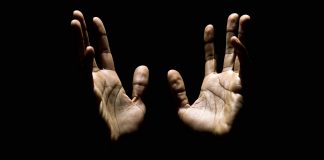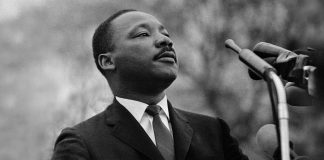Amid people and books
Meetings with people and books have shaped the space for a sometimes unequal, sometimes unsatisfactory growth between the human I am and the one I would like to be.
Thomas Helwys
“For men’s religion to God is between God and themselves. The king shall not answer for it. Neither may the king be judge between God and man. Let them be heretics, Turks, Jews, or whatsoever, it appertains not to the earthly power to punish them in the least measure. This is made evident to our lord the king by the scriptures.” These are...
Martin Luther King, Jr. | What have we to do with heroes?
On August 28, 2011, when the Martin Luther King, Jr. Memorial was opened to the public in Washington D.C., 48 years had passed since the famous “I have a dream” speech by the young African-American Baptist pastor.
The hope of God’s judgement
To be able to see our world and life through the experiences of someone of a different culture and background is rare. It is a gift—but it can also be a jolt to our sensibilities and assumptions. The world we thought we knew can look very different through someone else’s eyes. This is one reason storytelling can be such a powerful form of...
A healthy old age is built decades before
An old saying states: "If youth knew; if age could". This truth is reflected by countless studies showing that lifestyle adjustments made in middle age (or even earlier) favour a transition to a healthier old age.
The forgotten book
Almost 500 years have passed since the 1524 publication of the work that one prominent leader of the 16th-century Protestant Reformation, Andreas Karlstadt, wrote in defence of the Sabbath doctrine.[1] It was the first work on this subject written by a leader of the Reformation.
Stubborn faith
On a number of occasions during his writing life, Nobel Prize winner and author Elie Wiesel tried to re-tell the story of a profound experience he’d had as a young boy in the Nazi death camp at Auschwitz. He wrote a play, a novel, and even a cantata to try to re-create his memory of this event, each of which remained unpublished. Finally,...
Can you buy joy?
The search for happiness is one of humanity’s greatest motivators. But most of us seek it through higher salaries, bigger and better homes, the newest gadget or latest fashion. A recent survey of wellbeing highlights three simple keys to happiness that most people can possess: a balanced and generous approach to money, a strong sense of life purpose and a few close and...
Doing good, better
The impulse to help is a hallmark of humanity—both evolutionists and creationists agree that a selfless act is something that makes us uniquely human. Even more so, as a community of faith, it’s exciting to realise that within every compassionate action exists an insight into the loving character of our Creator God.
In life, you have to take everything as it comes and have no regrets. True or false?
He had played the lottery for years, using the same numbers every time. But on the one day that he forgot to buy a ticket, the draw revealed the winning numbers to be exactly his "lucky" numbers.
The most important primary caregiver
According to attachment theory, originally formulated by John Bowlby and later refined by Mary Ainsworth, adults’ relational patterns are formed according to the model of the close relationship they formed in early childhood with their primary caregiver, who is usually the mother.
Everything natural is good. True or false?
There seems to be an obsession with the word "natural." We look for it everywhere and, if necessary, are willing to pay more for products deemed natural. If this were not the case, there would probably not be so much emphasis on advertisements and product labels that show the products' natural qualities.
Joy amid poverty
Poverty and laughter don’t necessarily go hand-in-hand. People who are worried about where their next meal will come from or where their children will sleep that night find it hard to wear smiles.
Seventh-day Adventists
Seventh-day Adventists consider the issue of religious freedom to be essential to their mission. “Separation of church and state offers the best safeguard for religious liberty and is in harmony with Jesus’ statement in Matthew 22:21: ‘Render therefore unto Caesar the things which are Caesar’s; and unto God the things that are God’s’.”
Are you a workaholic?
By 2030, epidemics will be eradicated; life, rejuvenated by injections, giving lifespans of 150 years; and cars almost obsolete with aeroplane ownership common. These were the 1930 predictions of FE Smith, a British politician and friend of Winston Churchill.


























